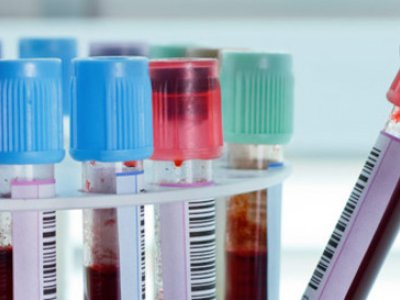IWRS: The best system to facilitate the progress of your clinical trials
11-09-2023The IWRS (Interactive Web Response System) is a web-based interactive Voice Response System used to control clinical trial telematic processes, such as stock management or patient randomization, facilitating multicenter and international clinical trial management.
It works like an IVRS (Interactive Voice Response System) but with computer instructions instead of telephone-based directions. It uses a standard web browser and an e-mail service and can be automatically integrated with other systems. The IWRS uses central databases to store all the information, allowing for easy follow-up and access to patients' data or laboratory test eligibility results. It can connect to other systems, such as the electronic case report form (eCRF), the laboratory systems, or different distribution centers, to ensure that drug orders are sent electronically.
Collectively, these technologies are known as Interactive Response Technologies (IRTs) or Randomization and Trial Supply Management (RTSM). IRT systems can be configured for complex studies with multiple treatment arms, titration trials, or adaptive trials that change as data are entered.
What is the purpose of the IWRS?
The IWRS is used to log new patients, randomize patients, and assign them to a treatment arm. It allows study managers and investigators to interact with a centralized IT database in real-time.
Similarly, to dynamically allocate treatments to subject groups to facilitate statistical analysis, the IWRS can assign treatments to the subjects. It automatically confirms the treatment assignment (on screen and via e-mail) and regular trial progress reports. Through online interactions, the IWRS system increases the detail that an investigator or manager can obtain on the trial's progress compared to those obtained through an IVRS. The IWRS also helps improve the blinding process by assigning treatment groups in a controlled and unbiased manner.
Reports on automatic allocation assignments and trial progress received by the investigator are prepared 24/7, thus eliminating time zone or distance-related issues.
An IRT can also be used to conduct follow-up on study drug inventory, dispense the drug to patients, including dispensation protocols and complex dosage instructions, and detect temperature deviations within the system. More advanced IRTs can also use an algorithm to predict when a study drug supply will run out based on enrollment rates and patient withdrawal, conduct drug delivery follow-ups, and control temperature, detecting harmful deviations within the system.
It works like an IVRS (Interactive Voice Response System) but with computer instructions instead of telephone-based directions. It uses a standard web browser and an e-mail service and can be automatically integrated with other systems. The IWRS uses central databases to store all the information, allowing for easy follow-up and access to patients' data or laboratory test eligibility results. It can connect to other systems, such as the electronic case report form (eCRF), the laboratory systems, or different distribution centers, to ensure that drug orders are sent electronically.
Collectively, these technologies are known as Interactive Response Technologies (IRTs) or Randomization and Trial Supply Management (RTSM). IRT systems can be configured for complex studies with multiple treatment arms, titration trials, or adaptive trials that change as data are entered.
What is the purpose of the IWRS?
The IWRS is used to log new patients, randomize patients, and assign them to a treatment arm. It allows study managers and investigators to interact with a centralized IT database in real-time.
Similarly, to dynamically allocate treatments to subject groups to facilitate statistical analysis, the IWRS can assign treatments to the subjects. It automatically confirms the treatment assignment (on screen and via e-mail) and regular trial progress reports. Through online interactions, the IWRS system increases the detail that an investigator or manager can obtain on the trial's progress compared to those obtained through an IVRS. The IWRS also helps improve the blinding process by assigning treatment groups in a controlled and unbiased manner.
Reports on automatic allocation assignments and trial progress received by the investigator are prepared 24/7, thus eliminating time zone or distance-related issues.
An IRT can also be used to conduct follow-up on study drug inventory, dispense the drug to patients, including dispensation protocols and complex dosage instructions, and detect temperature deviations within the system. More advanced IRTs can also use an algorithm to predict when a study drug supply will run out based on enrollment rates and patient withdrawal, conduct drug delivery follow-ups, and control temperature, detecting harmful deviations within the system.




